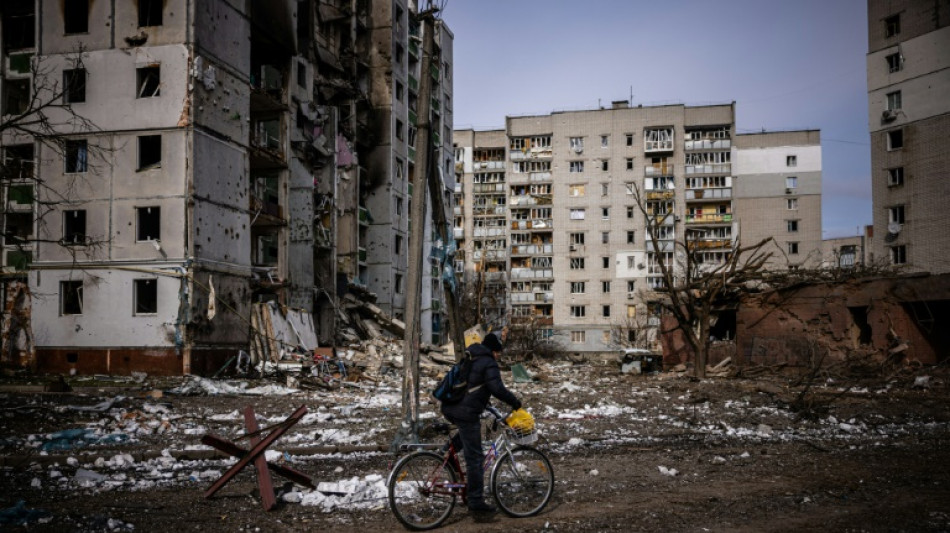
-
 S.Africa court rules ANC leader Luthuli was killed in apartheid 'assault'
S.Africa court rules ANC leader Luthuli was killed in apartheid 'assault'
-
Stocks slide as investors digest Trump-Xi talks, earnings
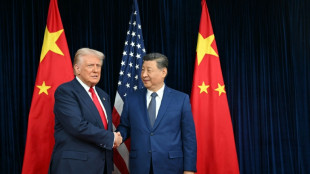
-
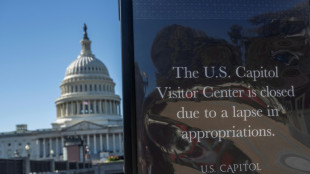 No GDP data released as US shutdown bites
No GDP data released as US shutdown bites
-
PSG's injured Doue to miss Bayern match, out for several weeks

-
 Litchfield ton guides Australia to 338 in World Cup semis
Litchfield ton guides Australia to 338 in World Cup semis
-
S.Africa court rules ANC leader Luthuli killed in apartheid 'assault'

-
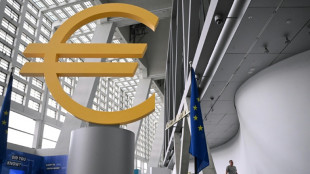 With inflation under control, ECB holds rates steady again
With inflation under control, ECB holds rates steady again
-
Nigerian designer embraces 'clashes' and 'chaos' at Lagos Fashion Week

-
 Nissan says expects $1.8 bn operational loss in 2025-26
Nissan says expects $1.8 bn operational loss in 2025-26
-
Italy court stalls Sicily bridge, triggers PM fury
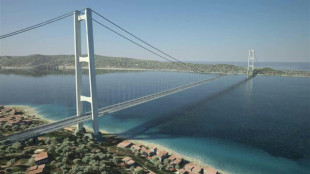
-
 Marseille midfielder Nadir stable after on-pitch collapse
Marseille midfielder Nadir stable after on-pitch collapse
-
Saudis turned down Messi stint ahead of 2026 World Cup, says official

-
 Novo Nordisk launches bidding war with Pfizer for obesity drugmaker Metsera
Novo Nordisk launches bidding war with Pfizer for obesity drugmaker Metsera
-
Universal says struck first licensing deal for AI music
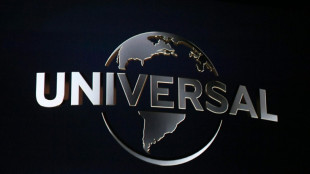
-
 France arrests five new suspects over Louvre heist: prosecutor
France arrests five new suspects over Louvre heist: prosecutor
-
Stocks fall as investors eye Trump-Xi talks, earnings
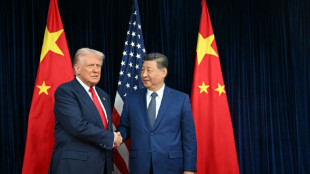
-
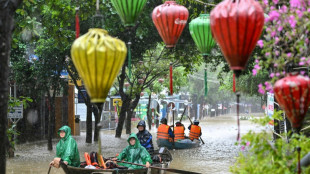 Record Vietnam floods kill 10, turn streets into canals
Record Vietnam floods kill 10, turn streets into canals
-
Trump orders US to start nuclear weapons testing
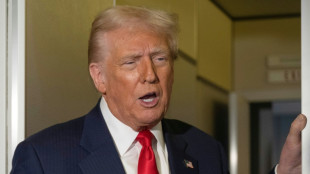
-
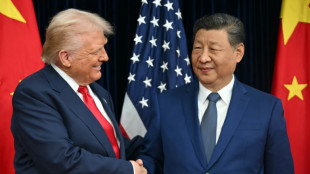 'Significant' Xi, Trump talks win cautious optimism in China
'Significant' Xi, Trump talks win cautious optimism in China
-
French justice minister visits jailed former president Sarkozy
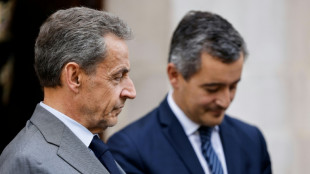
-
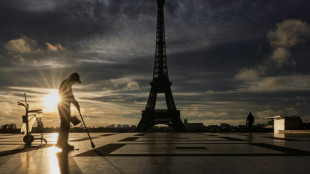 Eurozone growth beats expectations in third quarter
Eurozone growth beats expectations in third quarter
-
Bali trial begins for 3 accused of Australian's murder

-
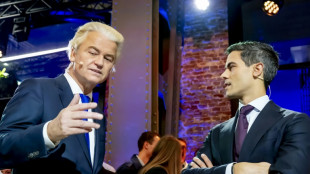 Dutch election a photo finish between far-right, centrists
Dutch election a photo finish between far-right, centrists
-
IOC removes Saudi Arabia as host of inaugural Esports Olympics
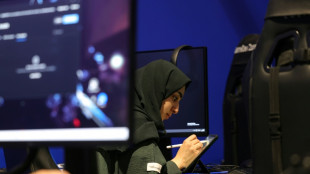
-
 Russia batters Ukraine energy sites, killing two
Russia batters Ukraine energy sites, killing two
-
Shell's net profit jumps despite lower oil prices

-
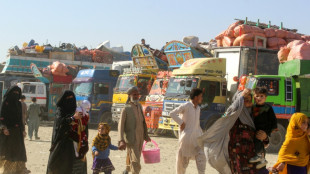 Pakistani security source says Afghanistan talks 'likely' to resume
Pakistani security source says Afghanistan talks 'likely' to resume
-
Fentanyl, beans and Ukraine: takeaways from Trump-Xi's 'great meeting'
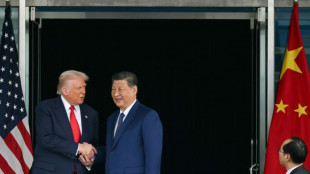
-
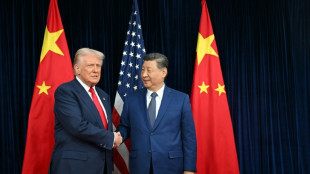 Asia markets fluctuate as investors examine Trump-Xi talks
Asia markets fluctuate as investors examine Trump-Xi talks
-
Branson's Virgin moves closer to launching Eurostar rival
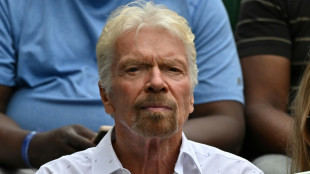
-
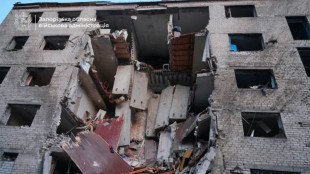 Russia hits Ukraine energy sites, killing one, wounding children
Russia hits Ukraine energy sites, killing one, wounding children
-
Asia markets fluctuate as investors mull Trump-Xi talks
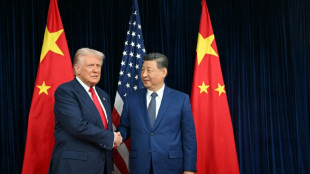
-
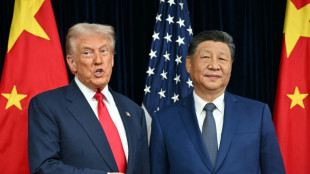 Trump, Xi ease fight on tariffs, rare earths
Trump, Xi ease fight on tariffs, rare earths
-
Volkswagen posts 1-billion-euro loss on tariffs, Porsche woes
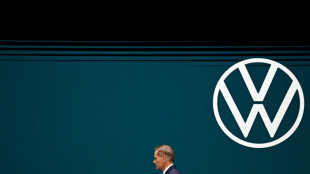
-
 'Fight fire with fire': California mulls skewing electoral map
'Fight fire with fire': California mulls skewing electoral map
-
Fentanyl, beans and Ukraine: Trump hails 'success' in talks with Xi
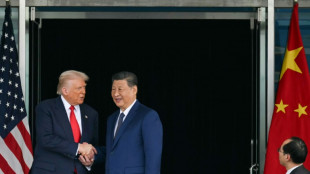
-
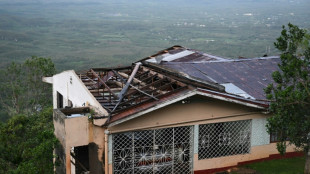 'Nowhere to sleep': Melissa upends life for Jamaicans
'Nowhere to sleep': Melissa upends life for Jamaicans
-
Irish octogenarian enjoys new lease on life making harps

-
 Tanzania blackout after election chaos, deaths feared
Tanzania blackout after election chaos, deaths feared
-
G7 meets on countering China's critical mineral dominance
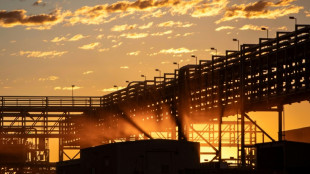
-
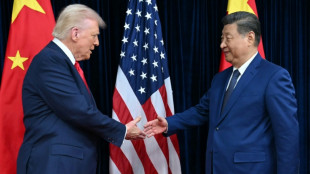 Trump hails tariff, rare earth deal with Xi
Trump hails tariff, rare earth deal with Xi
-
Court rules against K-pop group NewJeans in label dispute

-
 India's Iyer says 'getting better by the day' after lacerated spleen
India's Iyer says 'getting better by the day' after lacerated spleen
-
Yesavage fairytale carries Blue Jays to World Series brink

-
 Bank of Japan keeps interest rates unchanged
Bank of Japan keeps interest rates unchanged
-
Impoverished Filipinos forge a life among the tombstones

-
 Jokic posts fourth straight triple-double as Nuggets rout Pelicans
Jokic posts fourth straight triple-double as Nuggets rout Pelicans
-
UN calls for end to Sudan siege after mass hospital killings

-
 Teenage Australian cricketer dies after being hit by ball
Teenage Australian cricketer dies after being hit by ball
-
As Russia advances on Kupiansk, Ukrainians fear second occupation


To fight its war, Russia closing digital doors
Russia's blocking of Facebook is a symptom of its broader effort to cut itself off from sources of information that could imperil its internationally condemned invasion of Ukraine, experts say.
The often-criticized social network is part of a web of information sources that can challenge the Kremlin's preferred perspective that its assault on Ukraine is righteous and necessary.
Blocking of Facebook and restricting of Twitter on Friday came the same day Moscow backed the imposition of jail terms on media publishing "false information" about the military.
Russia's motivation "is to suppress political challenges at a very fraught moment for (Vladimir) Putin, and the regime, when it comes to those asking very tough questions about why Russia is continuing to prosecute this war," said Steven Feldstein, a senior fellow at the Carnegie Endowment for International Peace.
Russia thus joins the very small club of countries barring the largest social network in the world, along with China and North Korea.
Moscow was expected to quickly overpower its neighbor but the campaign has already shown signs that it could go longer and could lead to the unleashing of its full military ferocity.
"It's a censorship tool of last resort," Feldstein added. "They are pulling the plug on a platform rather than try to block pages or use all sorts of other mechanisms that they traditionally do."
Earlier this week independent monitoring group OVD-Info said that more than 7,000 people in Russia had been detained at demonstrations over Moscow's invasion of Ukraine.
Web monitoring group NetBlocks said Russia's moves against the social media giants come amid a backdrop of protests "which are coordinated and mobilized through social media and messaging applications."
The war is meanwhile taking place during a period of unprecedented crackdown on the Russian opposition, with has included protest leaders being assassinated, jailed or forced out of the country.
- 'No access to truth' -
Since Moscow's invasion of Ukraine last week, Russian authorities have stepped up pressure against independent media even though press freedoms in the country were already rapidly waning.
In this context, Facebook plays a key information distribution role in Russia, even as it endures withering criticism in the West over matters ranging from political division to teenagers' mental health.
Natalia Krapiva, tech legal counsel at rights group Access Now, said social media has been a place where independent, critical voices have been talking about the invasion.
"Facebook is one of the key platforms in Russia," she said, adding that its loss is "a devastating blow to access to independent information and for resistance to the war."
Russia has been hit with unprecedented sanctions from the West over the invasion, but also rejections both symbolic and significant from sources ranging from sporting organizations to US tech companies.
Facebook's parent Meta and Twitter however have engaged on the very sensitive issue of information by blocking the spread of Russian state-linked news media.
Russia's media regulator took aim at both, with Roskomnadzor accusing Facebook of discrimination toward state media.
Big US tech firms like Apple and Microsoft have announced halting the sale of their products in Russia, while other companies have made public their "pauses" of certain business activities or ties.
On Friday US internet service provider Cogent Communications said it had "terminated its contracts with customers billing out of Russia."
The Washington Post reported Cogent has "several dozen customers in Russia, with many of them, such as state-owned telecommunications giant Rostelecom, being close to the government."
It's exactly the kind of measure Ukrainian officials have been campaigning heavily for as they ask Russia be cut off from everything from Netflix to Instagram.
Yet experts like Krapiva worry about what that would mean for dissenting or critical voices inside Russia.
"There's a risk of people having no access to truth," she said.
"Some Ukrainians have been calling for disconnecting Russia from the internet, but that's counterproductive to disconnect civil society in Russia who are trying to fight."
V.Said--SF-PST


